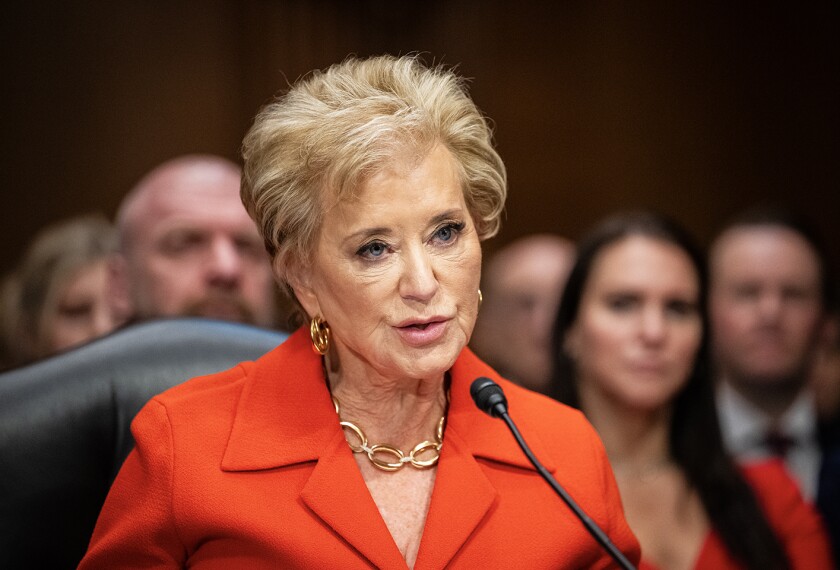Corrected: According to the UNESCO report, the figure of some 156 million children represents the additional number of children the world will need to make room for by 2015, compared with the number it had in 1997. The figure is based on projections of school-age populations. Also, the report estimates that there are currently 850 million illiterate adults in the world.
Some developing countries have made considerable gains in providing schooling for all their citizens, moving away from traditions of educating only the privileged or those with exceptional academic aptitude, a UNESCO report says.
But many other nations have made uneven progress toward that goal, and 32 countries are at grave risk of failing to provide a basic education for all their school-age children by 2015, according to the report issued Oct. 26 by the United Nations Educational, Scientific, and Cultural Organization.
“Monitoring Report on Education for All,” is available from UNESCO. (Requires Adobe’s Acrobat Reader.)
More than 156 million children around the world do not have access to schooling, subjecting them and their respective countries to a continued cycle of poverty and civil unrest, says the report, which is intended to monitor efforts for achieving universal schooling in more than 160 countries.
“Basic education is not only a ‘fundamental right’ for every individual,” UNESCO Director General Koichiro Matsuura writes in the report. "[It is] the key to sustainable development and peace and stability within and among nations.”
Some 160 nations adopted a framework for achieving universal schooling at the World Education Forum in Dakar, Senegal, in April 2000. The framework set forth goals for expanding early-childhood programs, establishing compulsory education, expanding education programs and life-skills training for teenagers and adults, eliminating educational disparities between boys and girls, and improving the quality of school programs.
The meeting last year was a follow-up to the 1990 World Conference on Education for All, held in Jomtien, Thailand.
Some Progress
Significant progress has been made over the past 25 years, and some countries have shown impressive gains since the forum in 2000, according to the report.
Between 1975 and 1998, for example, the number of primary school pupils throughout the world rose from an estimated 500 million to more than 680 million. At the current pace of expansion, the number of students in primary schools is expected to jump to about 700 million by 2005 and 770 million by 2015. The projected primary school- age population for the world in 2015 is 670 million. In many countries, however, older students are often enrolled in primary grades.
But while most countries are on track toward the goal of universal schooling by 2015—which means they will need to increase enrollment by about 5 percent each year— countries in sub-Saharan Africa, Southern Asia, and the Arab world will likely miss the mark, the report says.
In those regions, about 100 million of the more than 300 million primary-school age children—60 percent of them girls—do not attend school, according to UNESCO statistics. Angola, the Central African Republic, the Democratic Republic of the Congo, Lesotho, Liberia, Niger, and Somalia will need to increase the pace of enrollments tenfold to catch up, the UNESCO report says.
Other countries showing inadequate progress include: Afghanistan, Angola, Bhutan, Burkina Faso, Burundi, Cameroon, Chad, Congo, Cote d’Ivoire, Djibouti, Eritrea, Ethiopia, Gambia, Guinea, Guinea-Bissau, Guyana, Haiti, Liberia, Mali, Mozambique, Nigeria, Rwanda, Sao Tome and Principe, Senegal, Sudan, United Republic of Tanzania, and Yemen.
The problem stretches beyond school-age children. Worldwide, one in five adults, or nearly 900 million, are illiterate, according to the report. Countries in East Asia, the Pacific, Latin America, and the Caribbean are on track to reduce illiteracy by half over the next 15 years, but Egypt, India, Bangladesh, Pakistan, and other nations lag far behind in their efforts.
While providing universal education is a challenge in developing countries—particularly in those in the midst of famine or war—it is feasible in most places, according to John S. Daniel, the assistant director general for education for the Paris-based UNESCO.
“It’s a big challenge, but at the same time it is an achievable challenge,” Mr. Daniel said in an interview. “What it needs is political will on the part of the country.”
Malawi, Mauritania, and Uganda, for example, have doubled enrollments and are on target for enrolling nearly all school-age children by the end of the decade. Many countries, however, may be neglecting the quality of school programs as they expand their reach, the report says.
To achieve education for all, the report recommends that developing countries invest large amounts of new money and rally financial support from other nations.
The recent terrorist attacks in the United States could prove a setback, the report suggests, if resources that might have gone for education and other social purposes are redirected to security and anti-terrorism efforts. But the events of Sept. 11 illustrate the urgency in the initiative, it says.
“These tragic events,” the report says, “are a reminder of the overriding importance of reaching the goal of ‘Education for All’ as a means of promoting international development and thereby laying the foundation for a world of peace, tolerance, and mutual understanding.”




